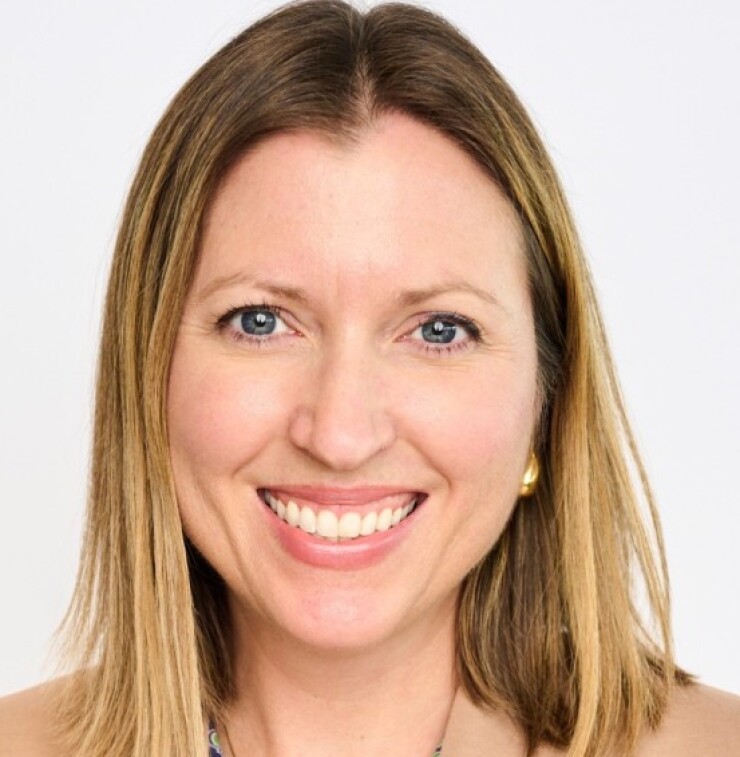MSI (Millennial Specialty Insurance) is an MGA available through The Baldwin Group insurance advisory platform, working with insurance agencies rather than direct to consumers. Digital Insurance spoke with Amy Carlisle, who joined MSI three years ago as it began rapid growth of its personal and commercial lines offerings, and became its president about one year ago. Carlisle, who began her career in underwriting and pricing at Liberty Mutual, is leading MSI's expansion of its platform and programs, already handling about $1.2 billion in premiums. She spoke about how MSI operates in high-risk areas like California, Florida and Texas, partnering with insurtechs and working with AI technology.
This article is from a longer interview and edited for clarity.
What are your goals and challenges in your role now?

We have continued growth across both our personal and commercial lines businesses, both in organic growth within the programs that we built, and then additional programs that complement our existing products. We partner quite a bit with agencies to develop specific programs for customers that they have access to.
We're still a relatively new company, so we're both building and managing at the same time. We've gone through a number of organizational transformations to ensure that we have the right balance of autonomy and ongoing strategy around where market opportunities exist, but then discipline to our approach to managing risk. Getting those kinds of checks and balances in place, and building out teams like product, actuarial and claims, is where I have focused – building a model that can keep us growing, to get to billions more in premiums over time.
How do you identify insurable risks or risks that can be mitigated in high risk areas?
We specialize in understanding unique forms of risk and building solutions around them. We win by understanding risk in a more specialized way, both by partnering externally, but then also working very closely with those agencies that have access to that type of risk. We can build a program where we feel confident in the underwriting and pricing. We're able to be more nimble through that approach than a larger carrier that is going to have an underwriting box that is very defined. We play around that, and are able to do that because these types of external solutions exist, and we brought in the right talent internally, from data scientists to actuaries to expert underwriters, to be able to uniquely build out a program that's more specialized.
We provide admitted programs in certain areas where that makes sense for us and where we have shelter distribution to control our exposure. We also have a variety of surplus lines offerings. We like having a balance of both of those, because depending on where the market is, we can flex between admitted and surplus lines offerings in a way that is pretty dynamic.
What do you look for from insurtech partnerships?
I'm an underwriter at heart myself, so I am always very interested in what type of information a third-party data provider can provide that we don't have. If you're pricing and underwriting only off what you know and see, you're missing this whole entire world of data that could be relevant to that type of risk. We always want to know what types of new data can be available and plugged into the pricing and underwriting process.
We also leverage many different types of tools that are now available for things like claims management. We had exposure in the California wildfires. Our claims teams had access to all these tools to understand early on what our potential exposure would be -- which of our homes were impacted, which were total losses and which were partials. We could adjust our claim handling process accordingly and get data to our capacity providers faster around what we thought the losses would be.
The quality of AI applications often depends on data quality. How does MSI ensure the quality of its data?
Our technology platform for underwriting risks is cloud-native. We pull as much data into the quote bind underwriting process as possible. The data available to use depends on whether it's a casualty program or property program, but we're always looking for what information is out there. Any time we're quoting or underwriting, we're using as much information as possible, and our system can adjust that. For us or other carriers, it's about how you get information, and then how do you plug it into different work streams and workflows. The way your technology is architected could either enable that, or be a real bottleneck to applying these solutions.
Why do MGAs have an advantage in the insurance market?
We can create bespoke solutions that meet unmet needs within the marketplace. Another advantage we have is that we can operate in a much more efficient manner than your traditional carrier. That's a real advantage in getting to some of these unique spaces and delivering a price point to that end buyer that's more competitive. We can typically operate at a much lower expense ratio than the rest of the industry, because of our proprietary technology and the matchmaking construct that we've developed between capacity on one side and agencies on the other side.






